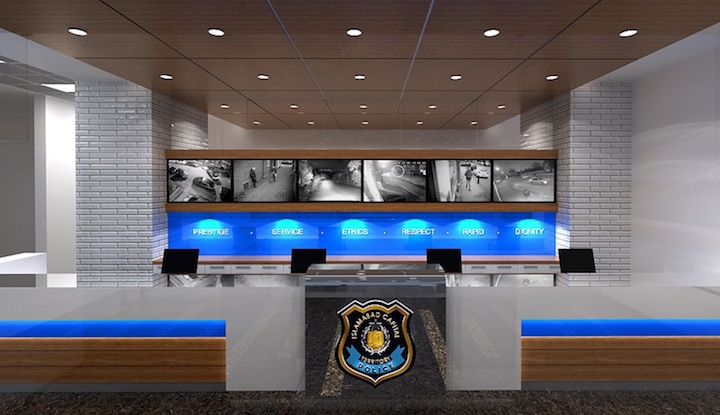By U.Zee
ISLAMABAD: The Islamabad Capital Police have successfully completed the Data Hub project, covering 25 categories, which will significantly strengthen law enforcement agencies in maintaining law and order and conducting effective surveillance to combat anti-social elements.
The completion of the Data Hub by Islamabad Capital Police marks a significant step forward in bolstering security measures and ensuring the safety of the capital city’s residents. The comprehensive database, spanning 25 categories, will provide valuable insights and information to law enforcement agencies, enabling them to take proactive measures against criminal activities and maintain a secure environment.
The Islamabad Capital Police tireless efforts, supported by the guidance of Federal Minister of Interior, Rana Sanaullah Khan, have resulted in a robust system that will empower law enforcement agencies.
Thus remarkable achievement has been accomplished by Islamabad Capital City Police Officer (ICCPO), Dr. Akbar Nasir Khan, and his team following the directions of the Federal Minister.
This comprehensive database can now be utilized by relevant authorities responsible for maintaining law and order. The successful implementation of the Data Hub project, completed within a short span of three months, is a testament to the dedication and expertise of the team involved.
ICCPO Dr. Akbar Nasir Khan and his team in Islamabad have achieved a commendable success by completing the construction of the Data Hub. This project has not only been accomplished in the capital city but has also been extended to Safe City Islamabad. The Data Hub now contains a compilation of diverse data from 25 different categories collected from all provinces of Pakistan.
The Data Hub encompasses a wide range of information, including details of foreign nationals, Chinese residents residing in the federal capital, and Afghan refugees. Additionally, it includes classifications for schools, mosques, imambargahs, educational institutions, places of worship for minorities, slums, hotels, hostels, rented properties, and residential verifications.
The Data Hub also incorporates data from the Smart Verification and Alert System, the connected border management system, identification of illegal settlements within high-security zones, identification of terrorists as well as assistance in identifying facilitators and implementation of the fourth schedule.
Furthermore, the Data Hub comprises essential information such as hotel records, data of all vehicles within districts, travel information, Pakistan Railways data, records of individuals obtaining passports, data of persons residing at shrines and visitors, details of individuals holding weapon licenses, information regarding commercial centers, online taxi drivers, geo-tagging of all lands, and data from the Excise and Taxation Department.
The primary objective behind this extensive data collection is to enhance the surveillance and apprehension of criminals, religious extremists, and terrorists. By tightening the grip on such individuals, law enforcement agencies aim to ensure the safety and security of citizens’ lives and properties.



